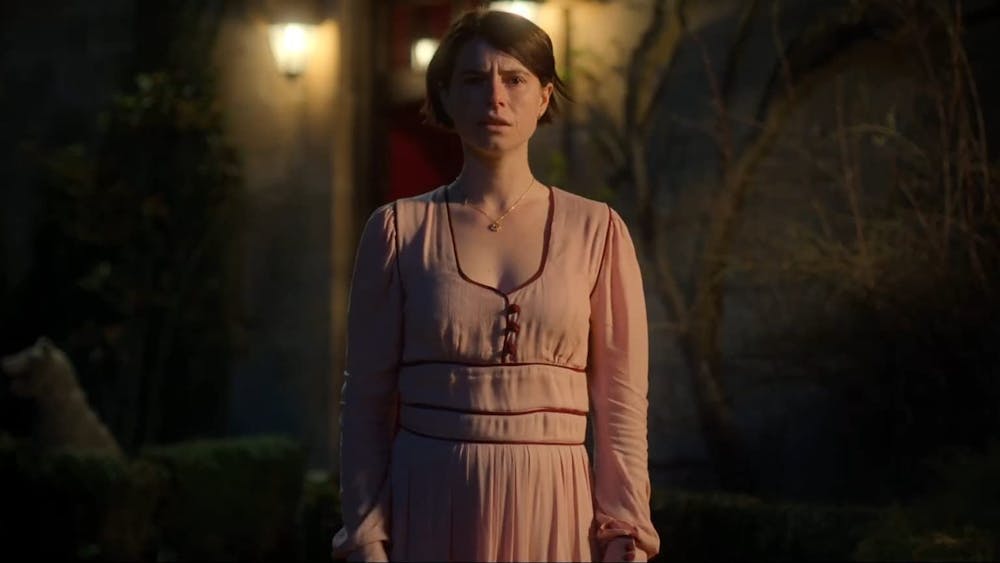This review contains spoilers
Alex Garland’s “Men,” released May 20, is a true feat of style over substance. The film is a tense, visually engaging slow-burn with some astonishing moments of supernatural horror. However, it ultimately falls flat, failing to utilize its lush visual language to portray any new or even remotely engaging thoughts on masculinity or misogyny.
“Men” follows Harper (Jessie Buckley), a recently widowed woman who takes a visit to the English countryside to unwind and heal from her husband James’ (Paapa Essiedu) traumatic death. This plan is foiled, however, when Harper is harassed by every man she encounters, and the film begins to unfold the incredibly toxic and abusive relationship she had with James.
This film takes its time to unveil its supernatural elements, first thoroughly establishing the many shades of misogyny Harper encounters in brutal fashion, ranging from standard microaggressions to victim-blaming to being stalked and harassed by a seemingly supernatural naked man.
Garland took care to fill this film to the brim with striking stylistic choices. The horror elements are thoroughly jarring, particularly the grueling male-birthing sequence towards the tail-end of the film that left my mouth agape.
I also appreciate that Garland took no time in the film to explain the supernatural elements that seem to be based in some sort of internal folklore not known to the audience nor to Harper. The viewer is plunged head first into a foreign environment filled with hostile figures and strange happenings beyond logical explanation, adding to the terror of the experience.
It is frustrating because there is so much interesting imagery within the movie that ultimately contributes nothing of value to the incredibly dense and nuanced topic of patriarchy and masculinity; any commentary that does exist in the film is incredibly hollow and surface level.
The most I can really glean that Garland wanted us to take away from the film is that different degrees of misogyny are all bad — this would be quite an interesting takeaway if I had never met a woman before in my life. His way of getting this idea across was a visually interesting choice, but also incredibly overt — all of the male characters were played by the same actor, Rory Kinnear, except for Harper’s abusive ex-husband (who was played by the only person of color in the film).
Additionally, it must be noted that at the end of the day, this film is ultimately about a woman being endlessly terrorized by every man that comes across her path. Harper is allowed essentially no character traits. She feels less than human; her dead abuser is allotted more time in the film to discuss his warped internal motivations for his behavior than Harper is given in the whole film to express any sort of emotion outside of uncomfortable responses to taunting and abuse from total strangers.
In making Harper such an inactive character in a story that revolves around her experiences, the experiences of the people actually feeling the effects of patriarchal violence are dampened. Of course, not all films have to be loaded with complicated philosophical ideas or strong political takes, but what is most bothersome about this film is that it leaves little nuggets that lead me to think that it was indeed Garland’s goal to say something of importance with the work.
Get content from The Daily Lobo delivered to your inbox
At the end of the day, lovers of horror will surely be delighted by “Men” if they are able to brave the first hour of shots of the English countryside bloating the film. However, if you were looking for something that goes beyond stunning visuals into something of a higher purpose, I fear this film is not for you.
Zara Roy is the copy chief at the Daily Lobo. She can be reached at copychief@dailylobo.com or on Twitter @zarazzledazzle






